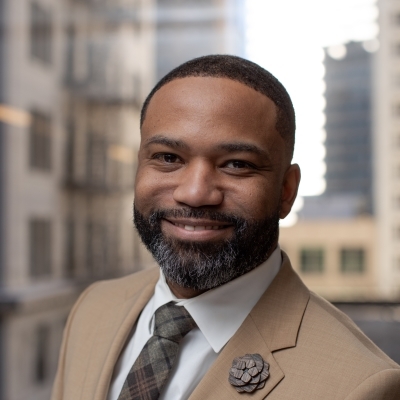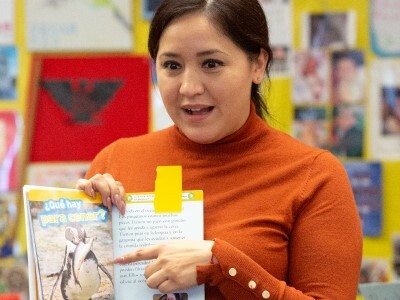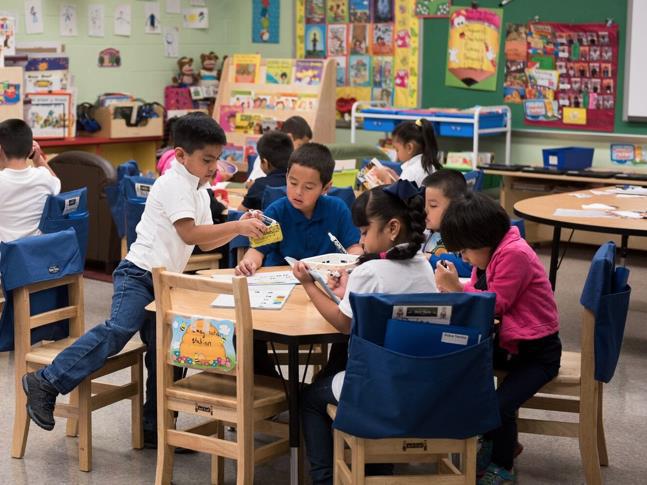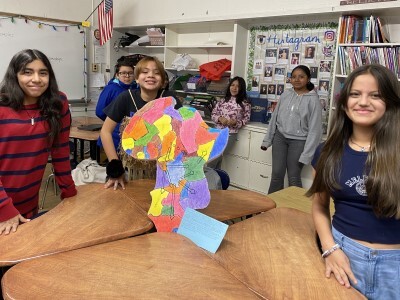Investing in Our Core: Three Ways Intentionality Drives Staff Retention
Topics
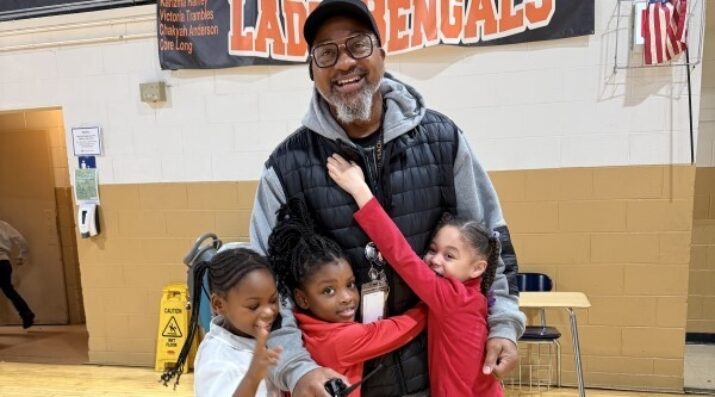
Educators are the lead learners in schools. If they are to enable powerful, authentic, deep learning among their students, they need to live that kind of learning and professional culture themselves. When everyone is part of that experiential through-line, that’s when next generation learning thrives.
When staff feel seen, respected, and clear about their purpose—like School Culture and Safety Facilitators at Distinctive Schools—they stay and they grow; and that translates into greater student impact.
A thriving school environment starts with student focus, and it grows when we nurture and invest in the adults around them. If we want our students to be successful, we must first respect and then inspire the team who serves learners every day. This philosophy is centered on the idea that retention is a direct result of intentionality—a deep commitment to seeing the purpose, potential, and individual pathways of every team member. When we are truly intentional about seeing, valuing, and investing in our colleagues, we cultivate a powerful culture of belonging that translates directly into a greater impact on our students.
This is a lesson I learned early in my career—retention means more than salaries, it’s about seeing the whole person. Somewhere along the way, I realized how much we give to our roles, but our roles don’t solely define us; we have so many passions, interests, and skills that make us who we are that can also live in the work that we do. When I was a principal, I focused heavily on humanizing the work experience, digging deep to understand each team member's purpose and pathway. This intentional approach to adult culture paid huge dividends: during my tenure as principal, we consistently maintained a staff retention rate over 95 percent. Moving into my current role as the director of culture for the Distinctive Schools network, I applied this same philosophy with our deans, and we saw a similar positive shift in retention and sense of purpose.
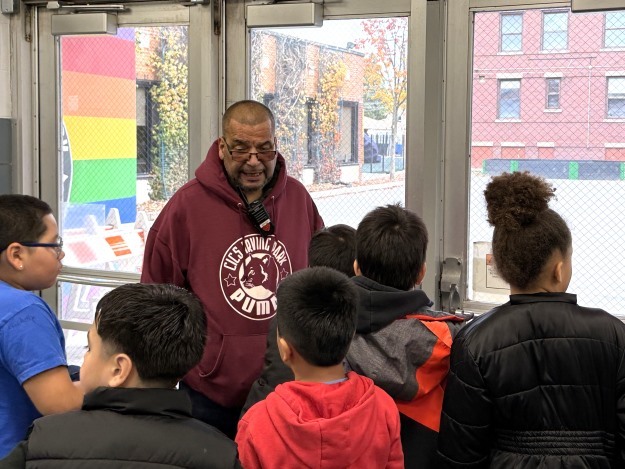
CICS Irving Park students gather around the school's culture facilitator.
Be Intentional with Identity and Language
Today, I’m focused on bringing this same energy to a group of staff whose critical role is often overlooked: those focused on the safety of our students. To recognize the true scope of their contribution and humanize their experience, we decided to rename the positions of "Campus Monitor" and "Security Officer" to "School Culture and Safety Facilitators” (Culture Facilitators for short). The words we use signal who and what we value, and our goal was to shift the narrative of their impact.
The change in title was highly intentional. The term "Security" often suggests punitive measures and roles built to deter behaviors rather than engage and inspire through intentional interactions. We want the community to recognize that conflict is not solved through force, but by building strong relationships—which is why these roles require special skills in de-escalation, mentoring, and mediating.
This intentional shift is already paying off: by enabling culture facilitators to be more proactive with restorative actions, we are seeing a reduction in suspensions and a return of instructional time to students. For example, one elementary school has already completed over 700 restorative actions this year, putting them on pace to triple last year's total. Even more drastically, another school that made this shift is seeing a massive reduction in behavioral issues, with less than 160 referrals by the middle of Quarter 2, compared to nearly 1,000 referrals by the end of last year.
Why this drives retention: People stay when their role feels respected, purpose-driven, and tied to the school’s mission.
Intentional moves: Use titles that reflect purpose, not just tasks; name and celebrate the impact of the role, not just compliance.
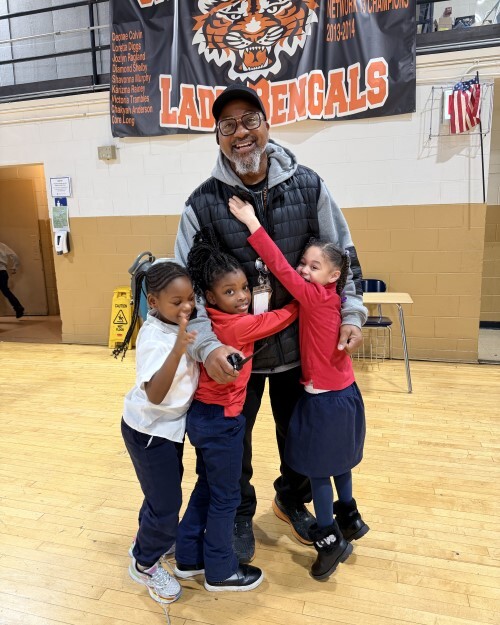
A culture facilitator connects with students at CICS Lloyd Bond.
Be Intentional with What Support Looks Like
The work our culture facilitators do—mediating conflicts, building trust, and maintaining a positive climate, to name a few—is inherently challenging and can be emotionally taxing. For retention, it is not enough to give them a new name; we must humanize the work experience by providing differentiated support and recognition.
This commitment starts with defining the role collaboratively, not solely from a leadership perspective. So at the beginning of the year before students even entered their buildings, we asked each of the culture facilitators what they see in their positions—why they believe their positions matter—and what they need to feel fulfilled. By bringing culture facilitators into decisions regarding their role, we achieve two goals: we immediately build a firmer sense of pride in their work, and we show them that their perspective is crucial to the role's success.
This "all-in" approach also means providing them with the data and information necessary to be a proactive resource to the school, rather than a reactive force. By equipping culture facilitators with tailored information, they are able to become proactive partners in culture, making timely decisions that lead to far more meaningful follow-up with students.
Why this drives retention: Staff stay and reinvest their passions into the students they serve when they feel truly seen, supported, and valued.
Intentional moves: Invite feedback and discussion on the vision of their roles; expose the team to data and pathways within the work—this information sharing also shares professional development.
Be Intentional over the Purpose of Individuals
Our vision is to shift the narrative to humanize the work experience. All roles require balance, and it’s important for our culture facilitators’ long-term sustainability to find what drives them—what they’re truly passionate about. The groundwork is essential, but the next step is to dig deep into individual purpose.
During our beginning-of-the-year professional development day, I asked the culture facilitators to set some individual goals—what they’re most looking forward to in their role, where they see themselves in the future, and what steps they will take to push themselves to get there. This intentionality allows us to build personalized pathways that will fill up their proverbial buckets. Some culture facilitators are exceptional at de-escalation; others are natural mentors. By helping them lean into these strengths, we have an opportunity for them to learn from each other and integrate more flexibly into the school community, creating a deeper sense of purpose and happiness.
We know people are ambitious, even if they're shy about it. It’s up to us as leaders to give them the platform to articulate their ambition. A short while after this individual goal-setting session, one of our culture facilitators came up to me and shared an incredible story: He started taking classes in behavior-related work because he now wants to be in the classroom.
That is the power of intentionality, and we know this investment matters because these individuals become essential extensions of the dean team's work. Currently, we have two culture facilitators successfully stepping into dean-level leave assignments. Without the intentional investment and thoughtfulness dedicated to people aspiring to grow into these roles, we wouldn't have been able to fill those critical voids. The transition feels seamless because these individuals are personally invested, and so are the teams who manage them. When we give people the opportunity to find purpose and define their own pathway, they give their best back to the students every single day.
Why this drives retention: Staff see clear leadership and growth opportunities from their current role, believe in the organization’s personalized investment in their future, and feel a crucial sense of importance that warrants that investment.
Intentional moves: Co-create goals, both professional and personal, that bridge individuals’ current roles with their long-term career aspirations.
Ultimately, intentionality is not a retention program or an initiative focused solely on outcomes; it is a philosophy of leadership that emphasizes who people need to be to achieve the goals of their role. By intentionally shifting language, differentiating support, and co-creating individual growth goals, we are both increasing our retention rate while actively humanizing the work experience. This internal focus—on how people operate within the system—is the most direct way to reinforce the foundational safety, culture, and care our students deserve. When our team members feel seen, respected, and clear about their purpose, they stay, they grow, and they pour their best into our schools, so each student has the opportunity to thrive.
All photos courtesy of Distinctive Schools.

